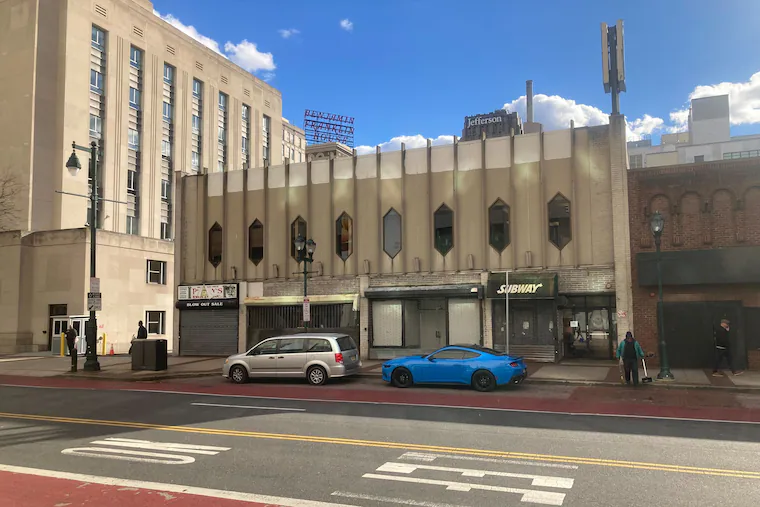Copyright The Philadelphia Inquirer

The methadone clinic on East Market Street is slated for closure, which would shutter one of the most centrally located drug treatment facilities in Philadelphia. Addiction Medicine & Health Advocates has operated out of its clinic at 928 E. Market St. since 2009, offering services to hundreds of patients a year. It is expected to close by year’s end. Many of the surrounding businesses have been shuttered in recent years, including a cash-for-gold store and a Subway franchise that it shared a building with. But the clinic continued on, its door inconspicuously located in a recessed alcove while its services were offered on the second floor. Addiction Medicine’s long-term fate at its current location has been in question since the Philadelphia 76ers began their push for a Center City arena in 2022. As part of their larger plans, the team planned to develop projects on the south side of the 900 and 1000 blocks of Market Street. Even after the arena deal fell apart, the 76ers in partnership with Comcast said they were committed to a major real estate development on East Market. Earlier this year they announced their purchase of properties on the south side of those blocks, which includes Addiction Medicine’s 928 E. Market home. In October they announced plans to demolish a handful of properties on the 1000 block. The team declined to comment on Addiction Medicine’s coming closure. A receptionist at the clinic told The Inquirer the clinic was closing because its lease is at an end. Other drug treatment organizations in the city have been coordinating with Addiction Medicine to take on its caseload and ensure continuity of care for patients. Methadone is an medication often used to treat people who are addicted to illicit opioids, easing cravings for the increasingly dangerous narcotic. “Community Behavioral Health (CBH) is aware of the planned closure of Addiction Medicine & Health Advocates and has been working closely with AMHA since early September ... to support a coordinated transition of care for all of our affected members,” said Rhashidah Perry-Jones, senior director of communications and government affairs with CBH. CBH is the city-contracted nonprofit that coordinates benefits for behavioral health services and addiction treatment for recipients of Medicaid, the government-funded health insurance for low-income people. Addiction Medicine has operated out of Center City for 40 years. Its latest nonprofit 990 forms show over $3.7 million in revenue, which largely stems from Medicaid coverage of its treatment services. In a 2015 interview, executive director Robert Holmes described the accessibility of Addiction Medicine’s location at the heart of Philadelphia’s transit system as a key aspect of its services. “Our priority is to ensure that individuals with Medicaid receiving methadone treatment experience no disruption in access to their medication and ongoing recovery supports,” said Perry-Jones of CBH. “While we recognize the challenges that will be posed by AMHA’s closure at the end of this calendar year, we remain confident that through coordinated planning, Medicaid recipients in need will continue to have timely access to care,” Perry-Jones said. CBH has 15 methadone clinics in its network, but Perry-Jones said she is unsure how many operate in the city overall. Perry-Jones said that despite the closure of Addiction Medicine’s East Market location, she does not anticipate any problems with meeting the need for methadone treatment in the city. Addiction Medicine’s closing follows the shuttering of the much larger Wedge Recovery Centers this spring. The addiction treatment provider had eight locations across the city and served 1,900 patients, nearly all of whom used Medicaid. Wedge officials said that the company was dealing with increased overhead costs, fewer patients enrolling in Medicaid, and “a lack of ability or interest” from local and state government to offer financial support. Health providers and advocates for people with addiction are always concerned for patients when a treatment program is closed, said Shoshi Aronowitz, a family medicine nurse practitioner and nursing professor at the University of Pennsylvania who treats people with addiction. “Similar to my concerns about what happened when Wedge announced it was closing, even in a best-case scenario when there’s truly enough capacity, there’s always potential for people to get lost,” she said, stressing that she was not speaking on behalf of her employer. Methadone is subject to strict federal regulations that often require patients to take a dose in-person at clinics on a daily basis. Transitioning to a new clinic could be difficult for patients, she said. Addiction Medicine’s location in Center City, close to many public transportation routes, set it apart from other clinics, and patients may find it harder to get to their new clinics, she added. “Methadone is notoriously onerous to access, already something that can be hard for people,” Aronowitz said. “It’s a big deal to have to go to a new place that might not be close to you. People might not understand where they can go or be fearful to go to a new place.” And, she said, she was concerned to see a second addiction medicine provider close in a year in Philadelphia. “Who knows what will happen in the future? But at a certain point, there’s not going to be enough slots [to accommodate displaced patients] if places keep closing,” she said.



